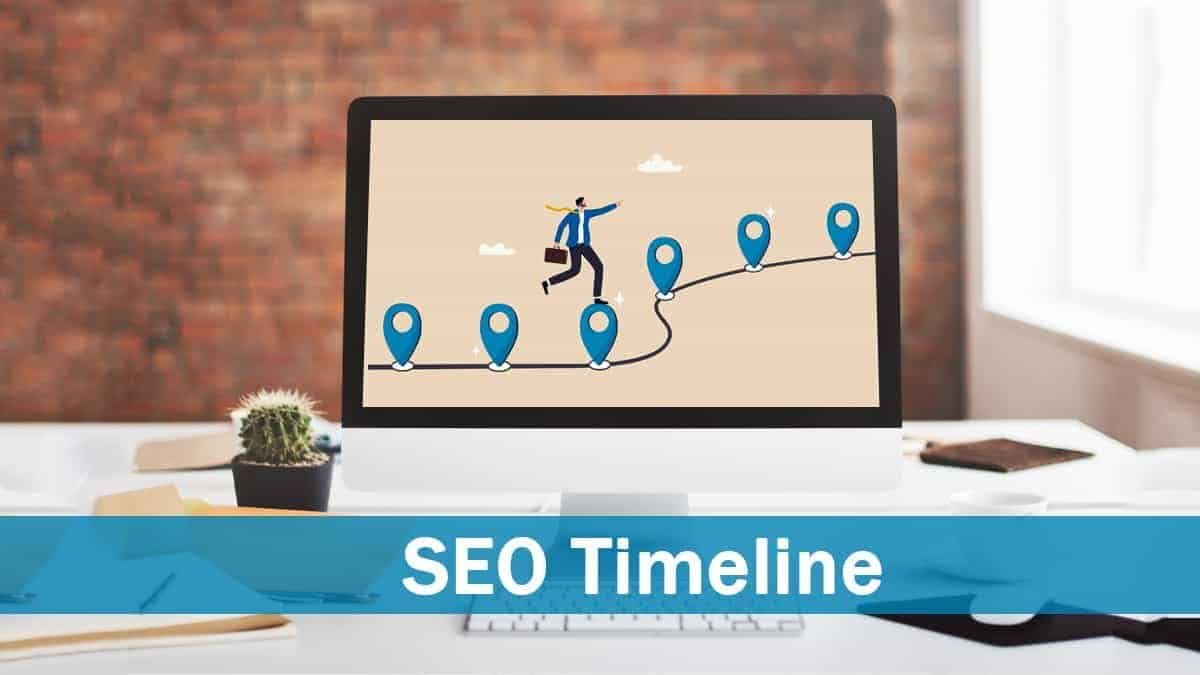White label SEO is an emerging trend within digital marketing products that offers a sustainable pathway to success for digital marketing businesses while also creating a lasting impact on clients.
Among the myriad options available for white labeling, white label SEO holds a prime position — and for a good reason. In today’s digital age, where acquiring information is key to online survival, white label SEO is indispensable for organizations across industries.
Our aim is to equip you with the insights you need to grasp the value of white label marketing, with a specific focus on the advantages of becoming a white label SEO reseller. We’ll explore the pros, cons, and other essential aspects in this post about what is W hite L abel SEO service.
What Exactly Is White Label Marketing?
White label marketing allows a company to grant another business access to a marketing product, such as SEO services, which can then be rebranded and sold to their own clients. This is an efficient, cost-effective way to diversify your offerings without expanding your team or investing in new technology. However, the concept extends beyond mere reselling.
In white label arrangement, the originating company stays in the background, letting the reseller take all the credit. For white label SEO, all tasks are completed on behalf of the reseller, allowing them to brand the products, services, and customer interactions as their own. In essence, the original company does the legwork, while the reseller enjoys the acclaim for a job well done.
White label services find applications in both B2B and B2C sectors. Whether it’s digital services like SEO and social media marketing, or tangible products like food and clothing, one company creates the product, and another sells it under their own brand. This mutually beneficial setup accelerates growth for both parties involved.
One of the most compelling aspects of white label marketing is its client-centric approach. Resellers can leverage the expertise, knowledge, and experience of the white label provider to boost their own credibility. In this way, resellers are seen as experts by their clients, who in turn receive professional advice on enhancing their websites or products. It’s a win-win situation for all.
This model goes by various names—outsourcing marketing services, private labeling, and white label resale, among others—but the core concept remains the same.
Selecting SEO packages from White Label SEO companies offers a scalable and cost-effective way to enhance your digital marketing efforts. These packages are often customizable, allowing you to pick the services that align with your clients’ specific needs and goals.
Let’s delve further into the intricacies of white label SEO.
What Is White Label SEO?

Source: Pinterest
White Label SEO, commonly known as SEO reseller services, establishes a partnership between two businesses. In this collaboration, the companies work together to manage the sales and marketing aspects of an SEO product.
Let’s say you operate a marketing agency focused on pay-per-click (PPC) advertising. A client approaches you, inspired by success stories in SEO, wanting to expand their digital marketing reach. While you want to accommodate this request, SEO isn’t your area of expertise.
This is where a white label SEO partnership becomes invaluable. Instead of investing time and effort to become an SEO specialist—diverting your focus from your core competencies—you can collaborate with a white label SEO company . This partnership ensures that your agency retains revenue and upholds its reputation, as you leverage your existing reach to sell SEO services. Meanwhile, the SEO partner contributes their specialized skills to fulfill the client’s needs.
In such an arrangement, the SEO-providing company typically submits unbranded reports. This allows your agency to rebrand these reports with your own corporate identity before presenting them to the client.
How Does White Label SEO Differ From SEO Reselling?
It’s easy to get confused with the terminology, so let’s clear things up. While they may sound alike, white label SEO and SEO reselling represent different setups.
Here, a white label SEO agency essentially becomes an extension of your company, taking over the complete SEO strategy and its implementation. Importantly, all the work is executed under your brand; their logo or information is not disclosed.
SEO Reseller:
In contrast, an SEO reseller functions as a sales agent and account manager for your SEO services. These resellers usually run their own businesses in related fields like paid media, social advertising, web design, or reputation management.
For the reseller, SEO is an add-on service to their core offerings. This allows them to upsell to existing clients or attract new ones. The partnership brings various advantages: access to a larger customer base, the addition of a valuable product to your portfolio, and the ability to tap into specialized SEO expertise—all at a reasonable cost. In essence, it enhances your brand and expands your service offerings, making you more appealing to your clients.
White label SEO allows your agency to scale effortlessly, which is essential for growth. You can broaden your service range without the complications and costs of building an entirely new product line, offering a one-stop solution that promotes growth.
Why Is White Label SEO Important?
You may be pondering the value of white label SEO and the reason for engaging a white label SEO reseller. The straightforward answer is that white label SEO offers mutual benefits to both the agency and the reseller.
For SEO specialists, white label SEO means they can concentrate on their work without the constant pressure of acquiring new clients—a significant advantage in a competitive landscape. Meanwhile, the agency that outsources these SEO tasks can focus on its core operations, boosting overall efficiency.
What Are the Benefits of White Label SEO?
-
New Clients
White label SEO partnerships create a win-win situation for both SEO specialists and resellers. Such collaborations expand the client base that each can serve. Additionally, customers benefit from having a single point of contact for all their SEO needs.
Agencies often use stringent vetting processes when outsourcing to SEO experts, ensuring that they partner with the best. Given the industry is flooded with exaggerated claims, the endorsement of a trusted agency can be invaluable.
-
Better Results
White label SEO services empower specialists to offer highly competitive services. Free from the need to market their skills, resellers can focus solely on delivering top-notch results for their clients.
-
Fast Turnaround
Projects often conclude more quickly when responsibilities are divided between two companies. This efficiency stems from the reseller focusing solely on client management, thereby allowing SEO specialists to concentrate on formulating effective strategies.
Moreover, establishing a clear project scope from the outset minimizes the need for extended discussions with the client. This speeds up the process, especially when the client already has a trusting relationship with the reseller.
What Are the Benefits of Outsourcing SEO Services?

Search engine optimization (SEO) is crucial for your company’s long-term growth. A robust online presence is indispensable in today’s digital age. Outsourcing SEO can enhance your digital marketing strategy significantly, providing consistent and reliable services that keep your clients satisfied. Below are the key benefits of outsourcing SEO services:
-
SEO Expertise
Embarking on an SEO journey can be challenging. Fortunately, you don’t have to go it alone. One of the major advantages of using white label SEO services is the expertise they bring to the table. This eliminates the need for you to craft a strategy in isolation.
White label SEO agencies play a crucial role in enhancing your brand’s value, visibility, and strength. Outsourcing allows you to better manage your responsibilities while leveraging external capabilities. This collaborative approach aligns your goals, knowledge, and insights with the expertise of the SEO provider, creating a compelling online presence for both your business and your clients. The guidance and expertise from seasoned specialists can be a game-changer for your company’s growth.
-
Helps You Save Money
One of the most tangible benefits of outsourcing is the potential for cost savings. When adding a new strategy to your business plan, the ultimate goal is to maximize your return on investment (ROI). Evaluating the potential cost benefits and added value of outsourcing can help you decide if it’s the right fit for your organization.
When you opt for a white label SEO campaign, you gain access to a team of experts who stay current in their field. This is more advantageous than hiring an in-house SEO consultant, where you’ll have only one point of contact.
Another avenue for cost savings is that you don’t need to invest in specialized SEO tools and software. Establishing an in-house SEO capability often involves purchasing various tools and training your team, both of which can be time-consuming and expensive. Most white label companies come fully equipped with the tools needed to run effective campaigns. By partnering with them, you avoid the cost of tools and training, allowing you to allocate resources to other essential areas of your business.
-
Staying Up-to-Date
The landscape of SEO is continually evolving, with factors such as Core Web Vitals, search engine crawling, and algorithm updates to consider. Running a business is challenging enough; staying current on these ever-changing aspects can be overwhelming.
By utilizing white label SEO services, you can rely on experts to keep you informed and updated on these changes. They have the ability to anticipate, manage, and position your company effectively, thereby enhancing its quality, efficiency, and long-term value.
What Are the Challenges of Outsourcing SEO?

Outsourcing SEO comes with numerous benefits, but it’s essential to recognize that no strategy is foolproof. Here are some challenges you might encounter:
-
Bad Communication
Effective communication between the white label SEO provider and the reseller is crucial for building trust and mutual understanding. Because you’re not co-located, maintaining a steady line of communication can be difficult, leading to misunderstandings and disagreements.
To mitigate this, adopt a proactive approach to communication. Start by setting clear expectations from the get-go, which will serve as a roadmap for both parties. Regular check-ins are also essential for maintaining open lines of communication, even when things seem to be going smoothly.
-
Workflow Management
Before choosing a white label SEO solution, it’s crucial to evaluate different providers carefully. Each has its own way of managing strategy, and SEO requires meticulous planning, documentation, and collaboration. Choose a provider who aligns with your organization’s goals, operations, and desired outcomes.
Given that SEO encompasses both on-site and off-site factors, it’s crucial to partner with an agency that has proven expertise in the field. Selecting the wrong agency could set you back in terms of competitiveness.
-
Set Expectations
We’ve already discussed the importance of clear expectations, but it bears reiterating. When contemplating a white label partnership, don’t rush into a decision. Take the time to fully understand the terms and conditions of the relationship.
While a white label SEO company will have its own set of terms, it’s equally important for you, as a reseller, to set your expectations. Failing to do so can lead to issues like inconsistent strategies, pricing discrepancies, or overall discord in the business relationship. Therefore, establishing and aligning expectations is critical for a full understanding of the partnership dynamics.
What to Consider While Choosing a White Label SEO Provider?
While each white label SEO program offers its own set of services and tactics, there are fundamental similarities. To ensure a successful partnership, there are key factors you should consider:
-
Long-Term Strategy
When evaluating potential SEO service providers, two primary considerations come into play. First, inquire about their client marketing approach. Ensure that it is both tailored and strategic, with a demonstrable history of success. Second, assess their level of experience. Seasoned SEO firms have specialized teams that closely monitor algorithm updates and market trends to adapt strategies accordingly, safeguarding your clients’ rankings and visibility.
Go beyond the surface. Ask pointed questions about their SEO methods and how they plan to serve your clientele. Find out what specific elements are included in each client engagement, and request documentation to substantiate their capabilities. This will enable you to make an informed decision based on actual expertise rather than glossy marketing pitches.
-
Reliable Metrics and Reporting
Accountability is crucial in any service you engage in. How can you ensure this? Through proper documentation. You should be able to review completed tasks, itemized costs, and final outcomes. In the SEO sector, this is commonly facilitated by dashboards and specialized tools designed to monitor activities.
It’s also essential to leverage Google Analytics and Google Search Console to track your website’s performance as a result of your SEO activities. When partnering with a white label SEO company, ensure they offer a transparent reporting dashboard for all client campaigns so that you can stay up-to-date on progress and results.
-
Proven Successes With Your Client Types
Case studies are invaluable for gauging the effectiveness of an SEO provider. It’s critical to ascertain whether the company you’re considering has successfully helped clients in your specific sector achieve top Google rankings.
Ensure that they have a robust and proven SEO strategy in place. Request detailed case studies that demonstrate how their approach aligns with the unique needs of your client base. This enables you to make a more educated decision about the partnership.
-
Sales Support
Your provider should actively assist you at every stage, from acquiring new SEO clients to closing deals. Consider them as an extension of your sales team, equipped to provide essential sales assistance.
If you find yourself needing to elucidate the intricacies of the SEO process, or you want additional backup from a team working under your brand, the sales support staff can come into play. They can directly engage with your potential clients, offering a comprehensive walkthrough of the SEO process and clarifying the different packages and pricing structures you offer.
-
Committed Growth Manager
One key factor to weigh when choosing a provider is the presence of a dedicated growth manager who serves as your reliable point of contact for discussions about your clients and campaigns.
These individuals are not just random contacts; they need to thoroughly understand your business, your clients, and your industry. It’s advisable to familiarize yourself with your growth manager prior to finalizing any contractual agreements to ensure a compatible fit.
How to Implement White Label SEO Effectively

Creating an effective white label SEO campaign requires integrating all elements that make up a successful SEO strategy.
-
Website Content
First and foremost, your website’s content plays an integral role in its search engine ranking. A 2016 study by Backlinkio revealed that top-ranking Google pages usually contain around 1,890 words. For websites with multiple pages, generating this amount of content can seem overwhelming. This is where a skilled SEO professional proves indispensable, helping you establish a scalable approach to delivering high-quality content across various landing pages.
-
Link Building
The construction of backlinks is another pivotal element of SEO. Be discerning when choosing which sites will link back to yours. SEO experts have the required skills to partner with site owners and bloggers in your industry to secure high-quality backlinks. These links do more than just enhance your online authority and relevance; they also provide a substantial boost to your overall SEO efforts.
Also Read: IMPORTANT FACTS ABOUT NO FOLLOW LINKS!
-
On-Page SEO
On-page SEO focuses on optimizing various elements within your website to improve its organic search visibility. This involves refining specific on-page components to make the site more crawlable and understandable for search engines. SEO professionals are adept at creating content that helps search engines easily interpret your site’s material.
-
Local SEO
Achieving top rankings for high-volume keywords isn’t the only route to driving meaningful traffic to your website. Local SEO allows you to target a specific, and often more motivated, audience. Leveraging Local SEO Reseller services to attract these local customers can be an extremely effective strategy, as they are more likely to convert.
-
On-Page Keyword Optimization
Factors like keyword density, competition, and relevance play crucial roles in keyword optimization. The process of selecting the most appropriate keywords for your website is nuanced and should align with your business goals. Understanding how to analyze these keywords is a key component of a successful SEO strategy.
-
SEO Audits
An SEO audit provides a comprehensive evaluation of a website to identify areas for improvement. SEO audits review various elements , including site structure, content quality, keyword utilization, backlinks, and technical aspects. The primary goal is to identify issues such as broken links, duplicate content, or slow loading times that could hinder a website’s search engine ranking. Addressing these concerns enhances the website’s visibility in search results.
-
Content Optimization
Content optimization is about improving the quality and relevance of your website’s content. This encompasses a range of tasks, including revamping existing material, generating new content, and aligning it with targeted keywords and audience preferences. High-quality, relevant content is vital for increasing organic traffic and boosting search engine rankings.
-
Blog Writing
Blogging allows you to regularly produce insightful and engaging articles on topics relevant to your business or expertise. These posts serve dual purposes: they offer value to your readers and increase traffic to your site. Well-crafted blog content can help establish your authority, build trust, and maintain audience engagement.
-
Reporting
In SEO, consistent and accurate reporting is essential for tracking the effectiveness of your strategies. These reports include metrics like keyword rankings, organic traffic, conversion rates, and other relevant data. They are invaluable for both clients and SEO professionals, enabling data-driven decisions for future optimization efforts.
-
Metadata Improvements and Analytical Tools
Improving metadata—encompassing title tags, meta descriptions, and header tags—is critical in SEO. These adjustments significantly enhance click-through rates from search engine results pages (SERPs) and improve overall search visibility. Well-crafted metadata can make your web pages more enticing and valuable to potential visitors.
Additionally, SEO specialists use a variety of analytical tools to monitor and evaluate the impact of their strategies. These tools offer insights into metrics like website traffic, keyword rankings, and user behavior. By scrutinizing this data, SEO experts can refine their approaches for better outcomes.
Conclusion
White Label SEO is a versatile and valuable approach for companies aiming to enhance their online presence and provide complete digital marketing solutions to clients. This model allows businesses to tap into specialized agencies for outsourcing SEO services while maintaining their own brand identity. This streamlined process improves operational efficiency and adds value to client relationships. It’s a win-win strategy that keeps companies competitive in the rapidly evolving digital landscape.
FAQs
Can clients tell if I’m using White Label SEO services?
Generally, clients cannot discern whether you are using White Label SEO services. Since the work is presented under your brand and customer communication is primarily through your company, the quality of service is the main point of recognition.
What types of businesses benefit from White Label SEO?
Various businesses, including marketing agencies, web design companies, PR firms, digital marketing resellers, and small businesses, can benefit from White Label SEO. This service allows these organizations to access expert SEO services without the need for in-house specialists.
How do pricing and profit-sharing work in White Label SEO partnerships?
Pricing and profit-sharing models vary among White Label SEO partnerships. Some offer a flat fee for each service, while others employ tiered pricing. Profit-sharing might involve a percentage of revenue generated through SEO services. Such details should be clearly outlined in the partnership agreement.
Can I offer other digital marketing services alongside White Label SEO?
Yes, many agencies offer a suite of digital marketing services in addition to White Label SEO, including PPC, social media marketing, content marketing, and web design. This comprehensive approach enables agencies to provide complete digital marketing solutions, increasing the value they deliver to clients.








